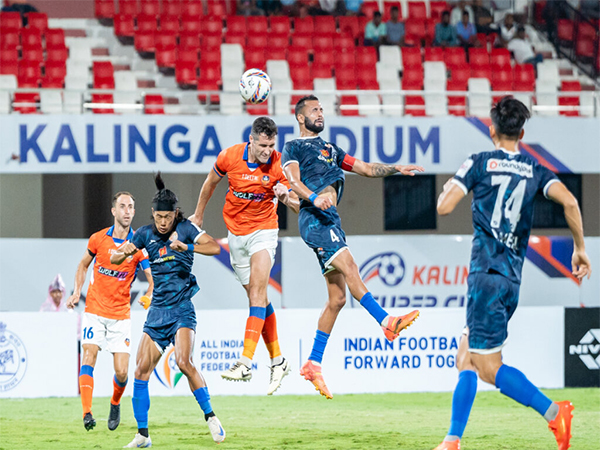"It's a great honour that Marathi has been given classical language status": Sanjay Raut
Oct 04, 2024

Mumbai (Maharashtra) [India], October 4 : Shiv Sena UBT leader Sanjay Raut on Thursday expressed his gratitude to Prime Minister Narendra Modi after the Union Cabinet approved the conferral of classical language status to Marathi and other languages.
The Union Cabinet, on Thursday, approved the conferral of classical language status to Marathi, Pali, Prakrit, Assamese, and Bengali.
Shiv Sena UBT leader Sanjay Raut says, "It is a great honour that Marathi has been given classical language status. 5 languages have been given this honour: Bengali, Marathi, Pali, Prakrit and Assamese. For years there was a demand that the Marathi language should be given this honour... Leaders of almost all parties in the state and for the last 30-35 years, every Chief Minister and every state government have demanded this. If this has happened, it is the contribution of everyone, not just one person... BJP has a habit of taking credit for everything."
"This is a matter of joy. This is why the Marathi language is being developed in several ways across the country. Nothing can stop us from developing the Marathi language. This means that the Marathi language is the language of Chhatrapati Shivaji Maharaj. The Marathi language is the language of Shivaji Maharaj," he added.
He further said, "The Prime Minister, Home Minister or Minister of Culture have always been a part of our delegation. So if this has happened today, then it is the contribution of all, not of one party or one person....BJP can take any kind of credit. So take it. It is their credit."
A Linguistic Experts Committee (LEC) was established by the Ministry of Culture under Sahitya Akademi in November 2004 to examine proposed languages for classical status. The criteria were revised in November 2005, and Sanskrit was subsequently declared a classical language. The Government of India has conferred classical language status to Tamil (2004), Sanskrit (2005), Telugu (2008), Kannada (2008), Malayalam (2013), and Odia (2014).

















